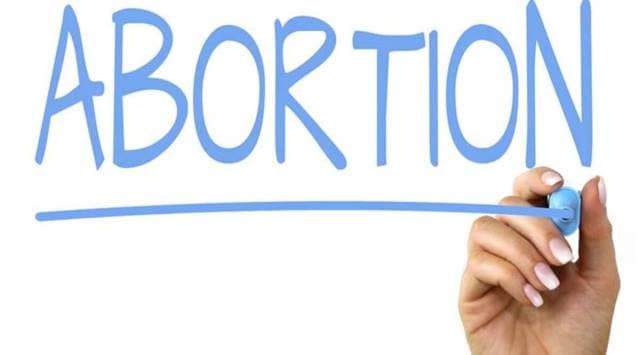How the abortion pill Mifepristone is being misused and sending young women to the ER. Used right, it’s safe
Doctors say the drug is efficient but must be obtained from a licensed pharmacy strictly based on a prescription, preferably in a hospital or nursing home setting. Inappropriate dosing can be fatal, including excessive bleeding, infection and sepsis due to incomplete clearance of tissu
 India has its own struggles with the misuse of a commonly-used abortion pill — Mifepristone — which often lands women in hospital emergency wards (File)
India has its own struggles with the misuse of a commonly-used abortion pill — Mifepristone — which often lands women in hospital emergency wards (File) The recent legal wrangle in the US to invalidate federal-approved abortion pills has once again brought back the spotlight on medical abortion. With more than 46 million abortions performed worldwide and an estimated 6.5 to 7 million in India annually, the scope of medical abortion is wide, according to a study by AIIMS, New Delhi. India has its own struggles with the misuse of a commonly-used abortion pill — Mifepristone — which often lands women in hospital emergency wards. Doctors here advocate an awareness drive on precautionary measures in using these pills and the need for more stringent rules to avoid their illegal sales.
How is Mifepristone, which is used for medical termination of pregnancy, different from surgical abortion?
Mifepristone is a synthetic steroid that has an anti-progestogen activity. It was first developed in France in 1987 and is widely known as RU 486. Progestogens are hormones that aid in the growth and development of pregnancy. “Due to Mifepristone’s antiprogestin property, it blocks the effect of progesterone and does not allow the foetus to grow. Hence it is used to terminate the pregnancy. Additionally, this medicine is used with a prostaglandin, which induces contraction of the uterus and helps to expel the foetus,” says Dr Sonal Kumta, Senior Consultant, Obstetrics and Gynaecology, Fortis Hospital, Mumbai. The standard dose for Mifepristone is 200 mg, given orally, followed by 400µg of Misoprostol, also given orally. In surgical abortions, doctors numb and dilate the cervix that allows for the insertion of a vacuum tube, which uses suction to empty the uterus.
Mifepristone isn’t prescribed at a later stage of pregnancy. So, what can be the health implications if pregnant women take it at a later stage?
It is majorly used in the first trimester for early termination of pregnancy (up to 63 days). But consuming the medicine late in pregnancy can cause severe bleeding and even death. Dr Chitwan Dubey, Consultant Gynaecologist and Laparoscopic Surgeon at Dr L H Hiranandani Hospital, Mumbai, explains that Mifepristone isn’t prescribed in later days of pregnancy due to its ineffectiveness of terminating the pregnancy. “Moreover, if a pregnant woman takes Mifepristone mistakenly, it will hamper her pregnancy by cutting down progesterone which is essential for continuation of pregnancy. Otherwise pre-term labour may occur or complications may lead to morbidity and mortality of the pregnant woman,” he adds.
Blackmarketeering of Mifepristone is quite common in India where stores sell the drug without the mandatory doctors’ prescription. How dangerous can it be for a pregnant woman?
Doctors say the tablets must be obtained from a licensed pharmacy strictly based on a prescription, preferably in a hospital or nursing home setting. Inappropriate dosing can be fatal, including excessive bleeding, infection and sepsis due to incomplete clearance of tissue.“The intrauterine pregnancy should be confirmed first by a gynaecologist, preferably using an ultrasound.The tablet should be prescribed after this procedure. If the tablet is taken without a proper prescription, the health implications can be dangerous for the woman and she can experience heavy bleeding or may faint or collapse. If it is a tubal pregnancy, it can result in rupture of the tube or bursting of the tube and bleeding inside the abdomen. In such cases, it may also become a surgical emergency. In extreme cases, heavy bleeding may result in the patient’s death,” says Dr Kumta.
Dr Dubey highlights how the serious side effects of Mifepristone include adrenal insufficiency (unusual tiredness, nausea, vomitting, fatigue, low blood pressure, low blood sugar), features of low blood potassium (muscle weakness, cramps, abnormal or irregular heart beat), disruption in menstrual cycle, abnormal rhythms of the heart, allergy to the medicine. Some of these could be life-threatening. “For these reasons, the Government made the rule that Mifepristone can only be sold legally on presentation of a valid prescription,” says Dr Dubey.
What about illegal abortion cases using Mifepristone? What is the line of treatment in such cases?
Last December, in Kerala, a 22-year-old woman, who was pregnant for two months, died after she consumed an abortion pill without a doctor’s advice. “Unfortunately such situations have occurred a few times in my practice. Usually a curettage or a surgical cleaning is required to stop the bleeding along with blood transfusion if too much of blood is lost till the patient comes for an opinion,” says Dr Jainesh Doctor, advanced gynae endoscopic surgeon, Motherhood Hospital, Mumbai. In ectopic pregnancies —when a fertilised egg implants itself outside of the womb, usually in one of the Fallopian tubes —taking the medicine without a doctor’s advice can even burst the tube. It might require emergency surgery or laparoscopy or open surgery laparotomy to control the bleeding. Despite the stringent rules of the US Food and Drug Authority (FDA), some online portals sell the drug without insisting on a prescription.
Selling abortion pills without prescription and age proof is illegal and a punishable offence under the Medical Termination of Pregnancy Act (MTPA). But often, the drugs that come in medical termination of pregnancy (MTP) kits are sold without the mandatory documents. Says Dr Kumta, “There have to be very strict norms for all the medical channels disseminating this medication. There has to be accountability as to whom it is being sold to and whether they have confirmed the doctor’s prescription. Most importantly, we will have to create awareness on various platforms so that people should know the side effects of using certain medications without proper channels.” She suggests a comprehensive, free patient awareness drive online and offline in schools and colleges. In fact, the apex drug regulating body has issued several notices to e-commerce companies like Amazon and Flipkart for selling MTP kits without prescriptions.
What about a lack of awareness among pharmacists who often confuse abortion pills with contraceptive pills?
Doctors admit awareness about Mifepristone is poor not only among women but also among pharmacists. “Although awareness is increasing, a subset of patients still source cheap medication prescribed directly by pharmacies and by unrecognised health care centres.The government should focus on restricting licences to medicine shops without pharmacists and to increase vigilance. The common people should also be careful and check the prescription and medicine dispatched to them properly,” Dr Dubey adds.
Do you think that banning abortion pills can curb illegal pregnancy termination that risks the lives of women, especially young women, in India?
Most doctors express their concerns about banning Mifepristone, which is also used to soften the cervix before surgical termination of pregnancy, as a pre-treatment before giving prostaglandins, and to induce labour for removal of dead foetuses. Dr Dubey also shares the use of the drug in non-obstetric conditions like Cushing’s Syndrome, emergency contraception, uterine fibroids, endometriosis among others. “It is an important medicine. We must ban the illegal use and medically unjustified use rather than banning the medicine as a whole,” says Dr Dubey.
“Termination of pregnancy is a woman’s right and we have to ensure that she gets access to good medical advice and safe methods of terminating pregnancy. Women can take action without fear, hesitation or stigma, and without compromising their health or risking their lives. Contraception is a voluntary choice for the patient and she should be able to exercise her choice in a safe environment,” says Dr Kumta.



- 01
- 02
- 03
- 04
- 05




























